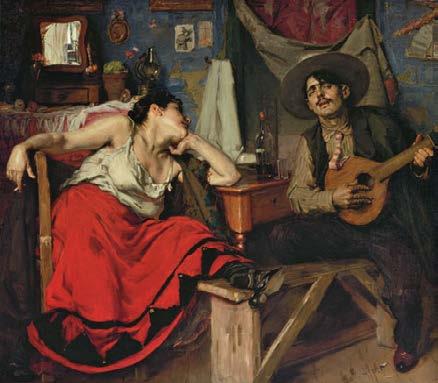
4 minute read
Napoleon’s Impotence
Remembering History and learning Democracy.
by Luís Lowden da Silva
Advertisement
Leo Tolstoy, War and Peace, Book X: Chapter XXVIII
Popular historic memory tends to be a parade of kings, emperors, politicians. Geniuses of science, strategy or leadership. As we follow along with each instance of the abstract concept that is a nation, our anchor to the material reality is the lives of significant individuals.
This certainly makes some sense. The process of history is to build a narrative from a collection of facts, and the narrative we are familiar with the most is each of our lives, which naturally we observe in a biographical style. Our tendency for this type of description is, as the lives of extraordinary people, the consequence of the conditions in which we exist.
Even when great strides are taken by a single individual, we cannot assume that his existence was necessary for it. Isaac Newton and Gottfried Leibniz independently developed Calculus at around the same time; so did Charles Darwin and Alfred Wallace with the theory of evolution. A society with a sufficiently well-trained pool of talent will, sooner or later, progress in a certain field given that it possesses the requisite conditions and background knowledge.
It can be argued that, rather than “Great Individuals” carving a hole with their shape into history, we have history creating itself a hole of a certain shape, through the innumerable wills of the masses and the material conditions they inhabit, and allowing whichever figure fits best (or first) to fill it.
However, when it comes to ecological consequences, we rarely point the blame at the leaders of nations or gigantic companies, who perhaps would have the power to drastically influence how much we abuse our planet. It is questionable how much doing so would really influence changes in policy, given how often our (democratic) states make decisions that go against the will and interest of their population. We point our fingers at the human mass; frequently accusing overpopulation in the third world and ignoring overconsumption in the first. However, Ecofascism is a can of worms I will not be opening here today.
I am here to look at the curious dissonance of having a worldview oriented around the choices of individuals and simultaneously trying to solve a problem caused by the cumulative effects of the lifestyles of billions of people. Those feeling guilty from the consequences and overwhelmed by the dimension of these problems will often find solace in washing their hands of the destruction of their planet by adjusting their individual lifestyles: biking to work, going vegan, etc.
To be clear, it is wonderful for someone to make changes in their life with sustainability in mind. If everyone were to do that, we would see a significant impact on our environmental footprint. It is unrealistic, however, to expect that these individual changes can be sufficient without deep systemic reconstructions that give everyone the possibility to make them and the mindset to choose it.
The danger of this mindset is in the satisfaction that comes from moral absolution. We are no longer concerned with being incapable of manifesting popular will because we convince ourselves that we already minimized our contribution to the problem. Our inability to deal with collective responsibility leaves us powerless to solve problems that require collective organization.
- Michael Parenti, Contrary Notions, Chap. 23.
Unless we have already an institution designed to address an issue, most of us have no idea how to approach this problem. While we may be educated about our structures of government, we receive no education in how to enact our political will beyond the very limited tool that is electoralism; we manifest our political agency only when we’re prompted to fill a ballot every few years. By having only a hammer we have no choice in what to build, only to either strike or not the presented nails.
In addition, our Media is either centrally planned, being directly controlled by large state/ privately owned entities (television, radio, print), or curated by algorithms to maximize profits for the hosting platform (social media). Consequently, in addition to having little control over what options we can choose from we also barely influence which ones we wish we were offered, as the mainstream discourse is beyond our reach.
If we want to orient society around the needs of everyone, it is fundamental to educate the population in effective democracy, beyond just the principle of voting. We must build fonts of information that benefit the people and expand democratic principles to all spheres of human activity. Without knowing how to go beyond what we are allowed to demand, real social progress can never be achieved.










